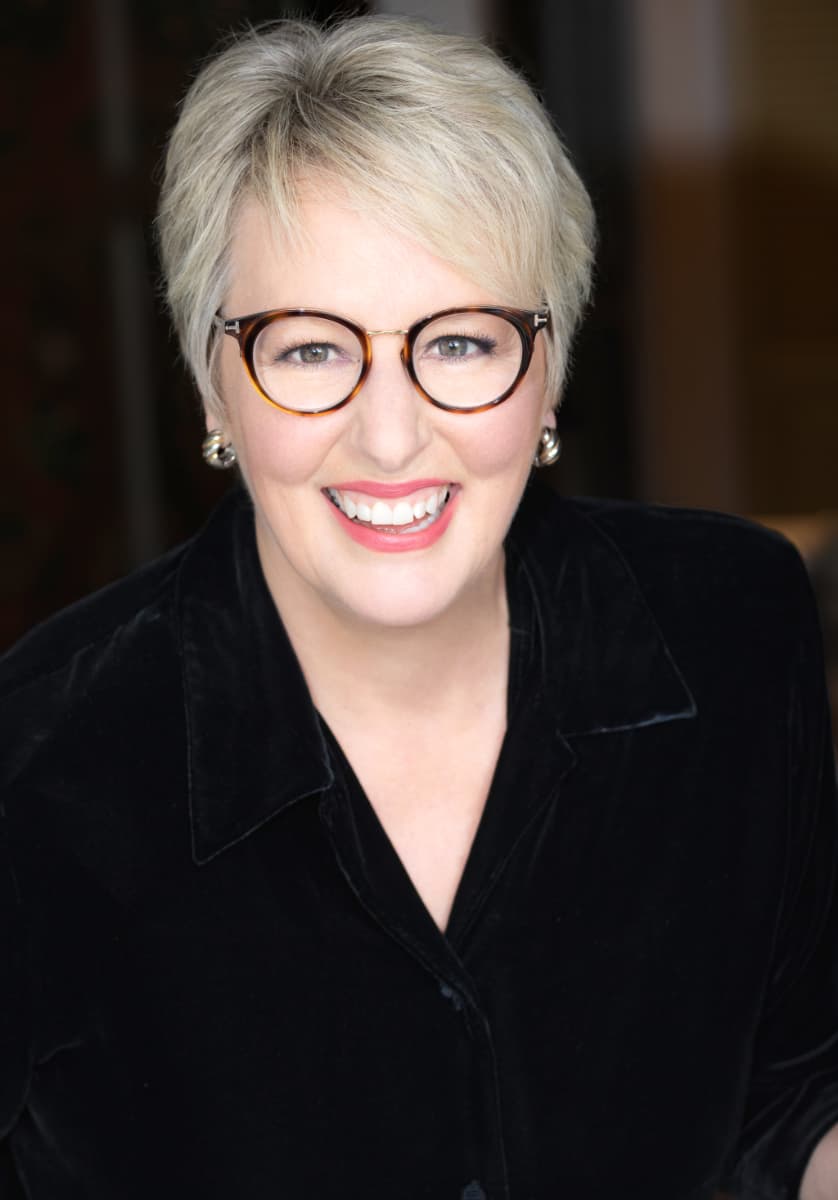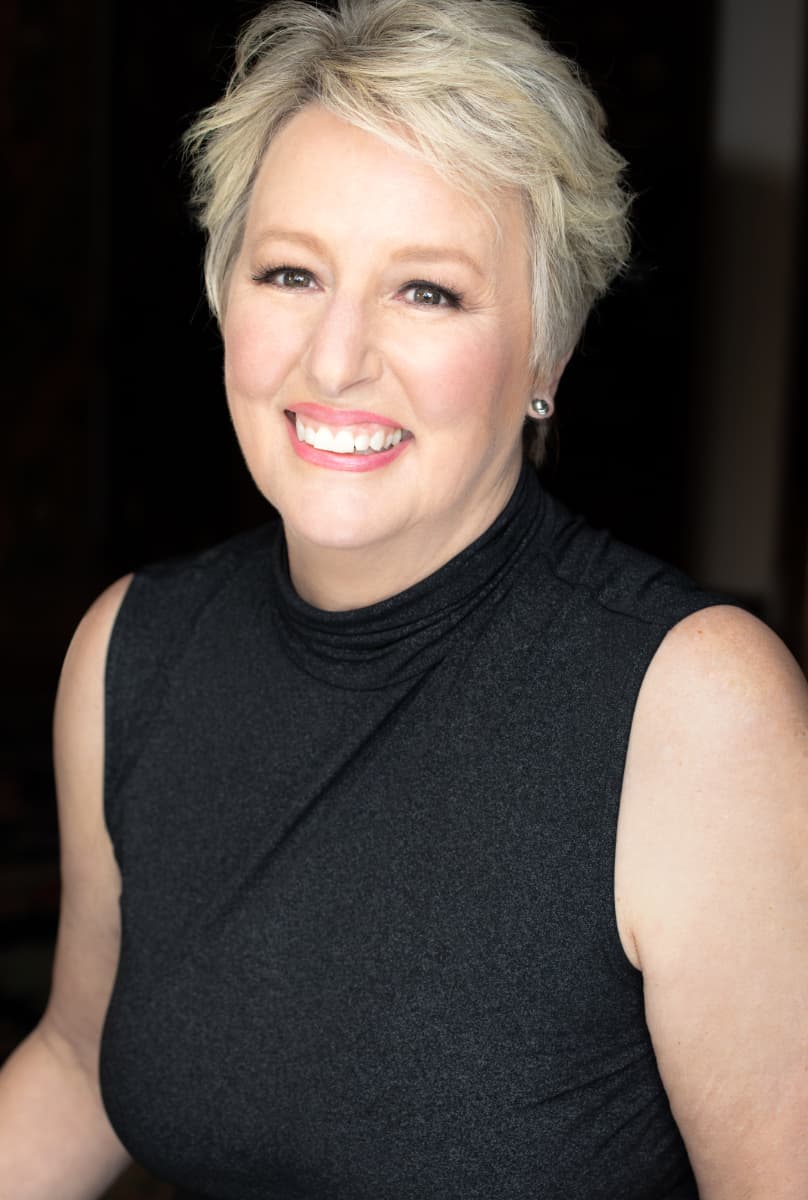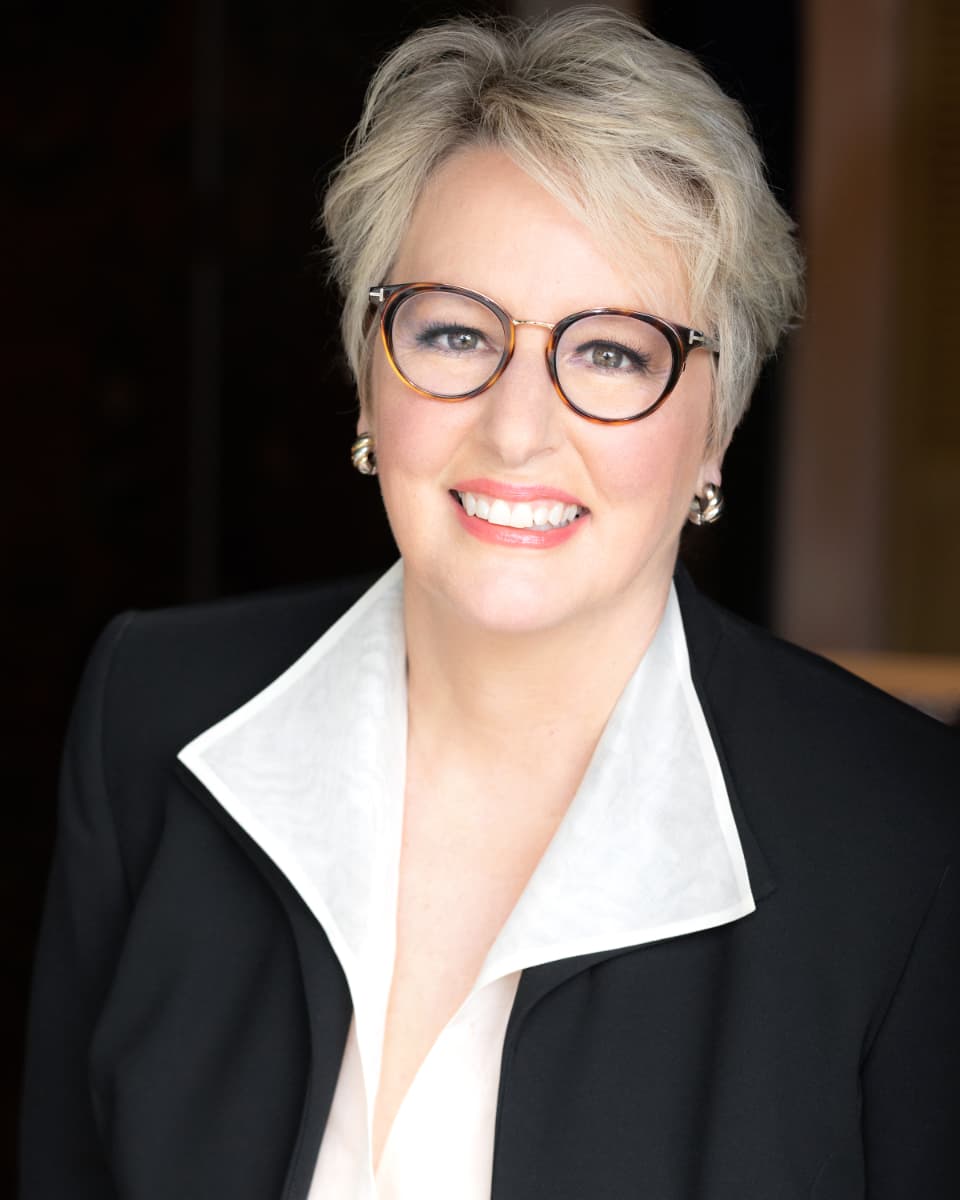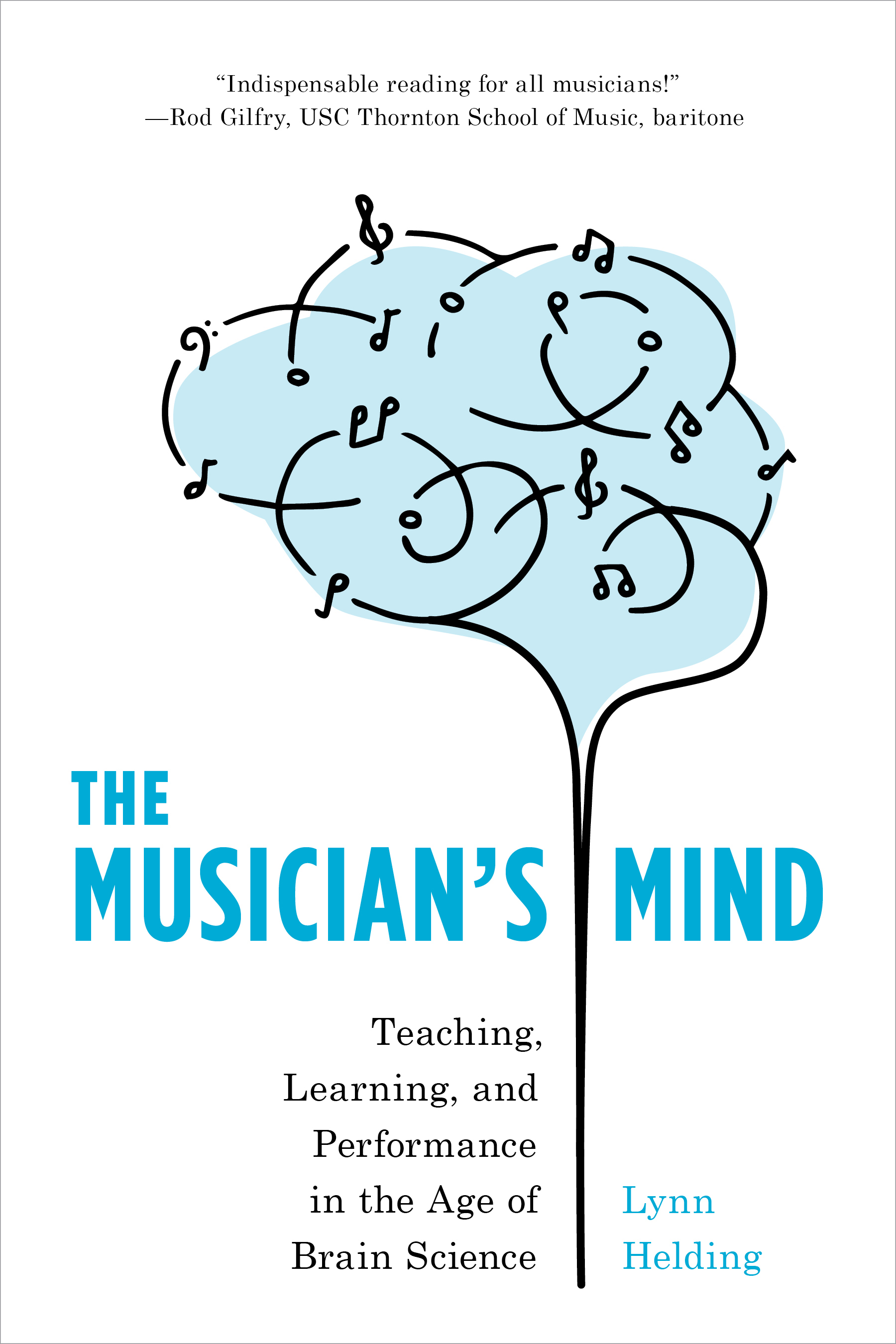
Lynn Helding
Professor of Practice in Voice and Vocal Pedagogy at USC’s Thornton School of Music, Helding is also the author of The Musician's Mind: Teaching, Learning & Performance in the Age of Brain Science, and the chapter “Brain” in Your Voice: An Inside View. A devoted teacher, she was recognized as a “legendary figure in the field of voice pedagogy” by the Contemporary Commercial Music (CCM) Vocal Pedagogy Institute at Shenandoah University, receiving their 2020 Lifetime Achievement Award, and is a member of the prestigious American Academy of Teachers of Singing. Her stage credits include leading roles with Harrisburg Opera, Nashville Opera and Ohio Light Opera, and solo recitals throughout the US, Italy, France, England, Germany, Spain, Australia and Iceland.
Services
Voice Teacher
Lynn Helding’s vocal technique is based on her years of experience as a performer in the classical repertoire as well as musical theatre and cabaret performances. Her “science-informed” methodology, based on over 30 years of experience, empowers singers with knowledge while building the sustainable technique necessary to support artistic expression. Her students have sung with LA Opera, Los Angeles Master Chorale, and received fellowships at the Aspen and Tanglewood Music Festivals, among others.
Voice Teacher
My Teaching Philosophy
- I assume that singers seek me out for an honest assessment of their sound and their technique. If we decide to work together, it is crucial that we agree on your sound ideal, and what you would like your voice to be able to express.
- My job is the “how” – the actual technique of helping you get there. My “how” is, of course, my approach to vocal technique based on what I have learned as a singer myself, plus over 32 years of teaching voice (and counting!), as well as over 20 years of studying voice science.
- But my teaching also includes simple yet profoundly effective cognitive methods I have developed via ten years’ worth of research in cognitive science, which formed the foundation of my book, The Musician's Mind: Teaching, Learning and Performance in the Age of Brain Science (Lanham, MD: Rowman & Littlefield, January, 2020).
- In addition, I am committed to spreading basic voice science knowledge and dispelling singers’ myths. I believe that it is vitally important that singers know why certain techniques work, or don’t work. I believe that empowering singers with knowledge is their best ‘armor’ in what can be a challenging endeavor.
- Nevertheless, using science to explain singing does not mean we have to squash art. I believe voice science must serve vocal art and emotional expression; otherwise – what is the point?
A Special Note For Previously Injured Singers:
- If your voice is currently injured, or you are worried that it may be, please seek a consultation with a qualified otolaryngologist who understands and regularly treats singers. Here in Los Angeles, I recommend The USC Voice Center, Keck Medicine of USC.
- Singers who have had previous diagnosed voice injury (i.e. vocal nodules) or surgery (i.e. removal of cyst, etc.) must present a physician's note saying it is ok for you to sing before I can give you a voice lesson.
- If you are cleared for singing: my qualifications for working with previously injured singers include advanced training in voice science at the Summer Vocology Institute of the National Center for Voice and Speech, where I now return periodically as guest faculty. I was awarded the annual Van Lawrence Fellowship in 2005, a research grant given jointly by the Voice Foundation and the National Association of Teachers of Singing Foundation to “recognize those who have demonstrated excellence in their profession as singing teachers and who have also pursued advanced training in voice science.” The award supported a research project at recognized voice centers across the United States to investigate two voice disorders, Muscle Tension Dysphonia and Vocal Fold paresis. I am currently a team member at The USC Voice Center, Keck Medicine of USC.
- Nevertheless: vocalists who need bona fide voice therapy must seek the services of a licensed clinical speech-language pathologist, who are identified by these letters: SLP-CCC (speech-language pathology, certificate of clinical competence).
Vocologist
Lynn Helding uses the term vocologist to designate her special training and qualifications which allow her to work with a variety of vocalists on a myriad of vocal problems, from singers with functional weaknesses to singers who have recovered from voice surgery and wish to transition from a post-therapy phase toward an optimal level of vocal activity. She is a team member at The USC Voice Center, Keck Medicine of USC.
Vocologist
I use the term vocologist to designate my special education, training and qualifications which allow me to work with a variety of vocalists on a myriad of vocal problems, from simple overuse issues to those singers who are declared recovered from surgery or other medical procedures by their physicians and looking to transition from a post-therapy phase toward an optimal level of vocal activity. The word vocology is defined as:
“the study of vocalization. .... as a professional discipline, the science and practice of voice habilitation, which includes evaluation, diagnosis, and behavioral intervention. The emphasis in this definition is on habilitation rather than rehabilitation. Habilitation is the process of enabling, equipping for, or capacitating. Voice habilitation is therefore more than repairing a voice, or bringing it back to a normal state. It includes the process of building and strengthening the voice to meet specific needs.”
(Titze and Verdolini-Abbott, Vocology: The Science and Practice Of Voice Habilitation; National Center for Voice and Speech, 2012.)
My vocology qualifications include advanced training in voice science at the Summer Vocology Institute of the National Center for Voice and Speech, where I now return periodically as guest faculty. I was awarded the annual Van Lawrence Fellowship in 2005, a research grant given jointly by the Voice Foundation and the National Association of Teachers of Singing Foundation to “recognize those who have demonstrated excellence in their profession as singing teachers and who have also pursued advanced training in voice science.” The award supported a research project at recognized voice centers across the United States to investigate two voice disorders, Muscle Tension Dysphonia and Vocal Fold paresis. I am currently a team member at The USC Voice Center, Keck Medicine of USC.
It is important to state that the designation vocologist is relatively new to the voice science vocabulary; this designation does not imply licensure, nor is it certification to provide speech or voice therapy, as defined by the American Medical Association, the American Speech-Language-Hearing Association (ASHA), and other medical and therapeutic organizations. Singers seeking bona fide voice therapy must seek the services of a licensed clinical speech-language pathologist, who are identified by these letters: SLP-CCC (speech-language pathology, certificate of clinical competence).
Presenter
Singers describe their experiences in Lynn Helding’s masterclasses as “life-altering,” and “truly jaw-dropping.” Having proposed cognitive science as the “Third Pillar of Voice Science,” she is equally in demand as a presenter on cognitive topics. As both master teacher and lecturer, she has presented at major voice conferences, symposia and schools of music throughout the United States, Europe and Australia.
Presenter
Master Classes
Lynn Helding is an expert master teacher, recognized as a “legendary figure in the field of voice pedagogy” by the Contemporary Commercial Music (CCM) Vocal Pedagogy Institute at Shenandoah University, receiving their 2020 Lifetime Achievement Award. Other significant teaching accolades include the designation Master Teacher by the NATS Intern Program (2019) and the William McIver Vocal Pedagogy Master Teacher Residency at the University of North Carolina at Greensboro (2019). Singers describe their experiences in her masterclasses as “life-altering,” “transformative” and “truly jaw-dropping,” and her approach as “articulate and professional while being absolutely ‘real’ and approachable.” In both masterclasses and public lecture settings, she is commended for navigating “that elusive balance between smart science and compelling art.”
Presentation and Lecture Topics and Keynote Speeches
Lynn Helding is a frequent presenter on a wide range of topics, based on over thirty years of experience as a singer and voice teacher, and dedicated research in cognitive science for her column “Mindful Voice” (published under her byline in the Journal of Singing from 2009-17), as well as her book, The Musician’s Mind: Teaching, Learning and Performance in the Age of Brain Science (Rowman and & Littlefield, 2020). Below is a partial list of recent lecture titles, followed by a list of topics on which she is prepared to speak.
Helding Lecture Titles
- Cognition in the Age of Corona: Teaching Students How to Learn
- The Missing Brain: The Third Pillar of Voice Science
- Alternative Facts: The Cognitive Dissonance of Hearing Versus Feeling
- The “How” of Voice Science: Motor Learning Theory
- The Triumvirate of Motor Learning: Talent, Training and Practice
- How Know-That Becomes Know-How: New Research in Motor Learning Theory
- The Power of Mindful Practice
- Ten Tenets from the Cognitive Revolution
- Mindful Voice: The Singing Teacher in the Age of Brain Science
- The Clinician's Illusion
- The Legend of Self-Esteem Theory
- The Future of Science is Art
- (for complete elucidation of these topics, see The Musician’s Mind: Teaching, Learning and Performance in the Age of Brain Science)
Quotes and Kudos about Helding Masterclasses and Presentations
"I just wanted to let you know you’ve truly changed my life as a teacher. I’ve been using some of the techniques from this weekend in my lessons today and…ta da!!!…results in every lesson. AMAZING! The frequencies aligned for one of my students today and it was truly jaw-dropping. I will be forever changed as a teacher because of your visit. Thank you so much for coming to Alaska and for truly sharing."
Christine Renee Keene, NATS Alaska President
"I am moved to write to you to say thank you. I have been going through my notes and recordings from your classes. What a wealth of useful and applicable information you shared with us! Today I had a great warm-up and had what I would call a transformative experience at my performance this evening. Everything felt easy, clear, better placed, and more consistent. … Lots of people commented on the change and how much they enjoyed it. I kept thinking, this is all Lynn."
Kate Hammett-Vaughan, Summer Vocology Institute
“Year after year, Lynn’s work with our students is nothing short of amazing. She has a great facility for quickly and easily assessing a student’s ability level, and a broad base of knowledge from which to draw to give students a concrete method for improvement. … we have witnessed breakthrough after breakthrough as she guided students into a better understanding of their own instruments. … As a musical theatre program we are very fortunate to have found an instructor such as Lynn who is so well-versed in both the traditions of vocal training and the proper use of the Musical Theatre belt technique, stressing throughout the importance of healthy vocal production. … Lynn’s knowledge of up-to-date medical research and techniques is astounding.”
Gregory Boris, Managing Director, Next Step Prep Music Theatre Academy
“I just have to tell you what a hit you were with my pedagogy class and with the professional ‘grown-ups’! You do a great job of being articulate and professional while being absolutely “real” and approachable. You have managed to keep that elusive balance between smart science and compelling art.”
Theresa Brancaccio Hansen, Northwestern University
“In May of 2018, I attended a symposium at the University of Southern California entitled “The Art and Science of Great Teaching: Celebrating the Legacy of William Vennard.” The symposium celebrated not only Vennard’s important contributions to voice pedagogy, but also acknowledged the inauguration of the Vennard Collection [ at the USC Library]: a new archive of Vennard’s personal writings, research files, and memorabilia. … While all of [the] speakers offered fascinating insights into twenty-first-century voice pedagogy, perhaps the most forward looking were the lectures by Lynn Helding and Kari Ragan. Helding presented a session entitled “The Missing Mind: The Third Pillar of Voice Pedagogy.” In it, she convincingly argued that singing voice research over the past several decades has focused overwhelmingly on biomechanics and acoustic theory, but the brain’s role in singing—including topics such as cognition, perception, procedural learning, neuroplasticity, and motor learning theory—has been a largely neglected aspect of voice pedagogy.”
Matthew Hoch (2019) Historical Landmarks in Singing Voice Pedagogy, Voice and Speech Review, 13:1, 43-60, DOI: 10.1080/23268263.2018.1527585
“On behalf of the students and faculty of the Indiana University Jacobs School of Music, I want to say thanks and congratulations for the wonderful presentation you gave to the Indiana University Student Chapter of the National Association of Teachers of Singing. The information you provided on motor learning is vital to all who teach physical skills to performers. Your presentation made the topic both clear and engaging. Evidence of your success was the large crowd that attended and the large number of people who stayed after the presentation had concluded, so they could talk with you about the ideas you had presented. It was clear that they found those ideas to be both interesting and useful. I found your presentation to be highly instructive and I plan to use the things you taught me in my studio teaching and in my courses in vocal pedagogy.”
Paul Kiesgen, Professor of Music, Indiana University Jacobs School of Music

“…you’ve truly changed my life as a teacher. …I will be forever changed as a teacher because of your visit.”
"I am moved to write to you to say thank you. … What a wealth of useful and applicable information you shared with us! … I had a transformative experience at my performance this evening. Everything felt easy, clear, better placed, and more consistent. … I kept thinking, this is all Lynn."
“Lynn’s work with our students is nothing short of amazing. She has a great facility for quickly and easily assessing a student’s ability level, and a broad base of knowledge from which to draw to give students a concrete method for improvement. … we have witnessed breakthrough after breakthrough as she guided students into a better understanding of their own instruments.”
Publications
The Musician's Mind: Teaching, Learning, and Performance in the Age of Brain Science
Where does learning begin and how is it sustained and stored in the brain? For musicians, these questions are at the very core of their creative lives. Cognitive and neuroscience have flung wide the doors of our understanding, but bridging the gap between research data and music-making requires a unique immersion in both worlds.
Lynn Helding presents a symphony of discoveries that illuminate how musicians can optimize their mental wellbeing and cognitive abilities. She addresses common brain myths, motor learning research and the concept of deliberate practice, the values of instructional feedback, technology’s role in attention disorders, the challenges of parenting young musicians, performance anxiety and its solutions, and the emerging importance of music as a social justice issue.
More than an exploration of the brain, The Musician’s Mind is an inspiring call for artists to promote the cultivation of emotion and empathy as cornerstones of a civilized society. No matter your instrument or level of musical ability, this book will reveal to you a new dynamic appreciation for the mind’s creative power.
"A fascinating book that adds crucial pieces to the puzzle of how and why humans make music, The Musician’s Mind is a ground-breaking examination of our engagement with an art form embedded in every culture, surrounding us even before birth. ... an invaluable contribution to the field of music pedagogy, advancing our understanding of an art all too easily taken for granted."
— Renée Fleming
"The Musician’s Mind may just change the paradigm for how musicians think about music. ... Essential."
— CHOICE Magazine
"A unique and outstanding contribution to pedagogy"
— Voice and Speech Review
"An exceptional contribution ...Stands to have a transformational impact on the field."
— Classical Singer Magazine
“An owner’s manual for the mind, specifically for musicians.”
— bulletproofmusician.com
Articles

Lynn Helding created the “Mindful Voice” column in the Journal of Singing, authoring over thirty researched articles published there under her byline from 2009-17. Other writings include articles for Journal of Voice, the chapters “Science-Informed Vocal Pedagogy” in The Routledge Companion to Interdisciplinary Studies in Singing, “Brain” in Your Voice: An Inside View, and “Voice, the Music of the Soul,” in Singing: The Timeless Muse. Helding’s writing is described as “ground breaking and exciting,” “profoundly captivating” and “tremendously important” while also being “well-written and accessible.” For a partial list of publications, see Helding’s Google Scholar page; for the complete list, download Helding CV.
